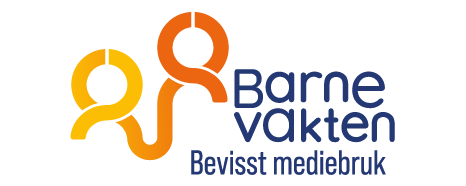
Norway is going to copy EU digital rules
DSA: Recently, the European Parliament adopted new digital rights for EU citizens. The new legislative proposal gives special protection to children. Digital service providers must make several changes to their services in order to comply with the law. The rules will be copied into Norwegian laws.
Choose language in the Google-box below. Some translations may be flawed or inaccurate.
Digital Services Act (DSA)
In January 2022, the European Union Parliament adopted a new legislative proposal for the digital rights of the EU population. It is called the Digital Services Act (DSA), and you can read about it here. Among other things, it is not allowed to track children or send them personalized advertising. The rules will be applied in Norway eventually. Read more about it further down.
What do the EU’s new digital rules mean really?
The DSA rules are comprehensive, and at the same time one may end up with some questions about what exactly is meant. But hopefully, there will be clarifications in due course.
Anonymous: DSA states, for example, that it should be allowed to use services anonymously, “wherever reasonable efforts can make this possible.” Barnevakten has previously revealed that Schibsted collected one million data points from a subscriber who read Aftenposten newspaper. Does this mean, once Norway has adopted the new EU rules, that Norwegian newspapers must provide subscribers the opportunity to avoid being tracked after logging in?
Does the right to remain anonymous mean that more anonymous trolls will emerge with their conspiracy theories? Or does anonymous right only mean that one should avoid tracking and that the channels can still demand people to debate under real names?
Online platforms: The new EU rules also state: «Online platforms should also not use personal data for commercial purposes related to direct marketing, profiling and behaviorally targeted advertising of minors.» But what is the definition of online platforms? Which companies are affected by this new regulation that applies to children? And does it only apply to commercial purposes? Is it more relaxed if you are a nonprofit or a municipality?
Further information: And what does it mean: “The online platform should not be obliged to maintain, acquire or process additional information in order to assess the age of the service.” Does that mean that it is the child who must notify about his or her age? Or does this mean that the service provider can only collect just enough information to determine the age of the user and that it is not allowed to collect anything more than what is necessary?
Digital ID: The new documents on digital rights in the EU state that citizens will eventually get a digital ID that can be used to log in to online services. Will children also get such IDs? Will it be able to be used to verify age?
What are the pros and cons of a digital ID? Will we leave even clearer data traces when we log in with ID? Will digital ID mean that the online debates will be tidier because you may be able to see more clearly who is speaking out? Does such ID mean that political online debates in Norway will receive fewer visits from trolls from non-democratic countries? Will the poor start renting out their IDs to people who want to debate under a false name?
These were just some of the questions one may ask after starting to dig into the 30,000 words that the DSA rules consist of. Barnevakten will return with more articles about DSA as we become more familiar with the rules.
When do the DSA rules come to Norway?
The new DSA rules will be finally adopted in the EU probably in the summer of 2022.
The EU Parliament adopted the DSA rules in January 2022. This summer, the Council of Ministers, or more precisely the Council of the European Union, will finally approve the DSA. The Council consists of ministers from 27 countries. A majority must have to be obtained that represents 65 percent of the EU’s population.
Like the GDPR, DSA rules will become part of Norwegian law because of the EEA Agreement. After the DSA is finally adopted in the EU, it will be one to two years before Norway will have the rules copied to Norwegian legislation.
For example, the GDPR was adopted in the EU in 2016 and was included in Norwegian law in 2018. At that time, the regulation was sent out for consultation from the Ministry of Justice and Public Security, and then the recommendation was adopted by the Storting.
In Norway, the Solberg government in 2021 developed the strategy «Rett på nett» on the development of digital rights. The strategy refers to the DSA rules that were currently being drawn up in the EU.
Read more articles here.
(First published in Norwegian on 01 February 2022. Translated by Ratan Samadder)
Utviklet som en del av Erasmus+ prosjektet «TeachingTools».










